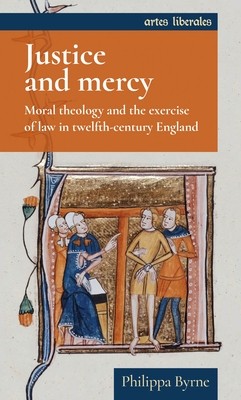
- We will send in 10–14 business days.
- Author: Philippa Byrne
- Publisher: Manchester University Press
- ISBN-10: 1526155907
- ISBN-13: 9781526155900
- Format: 14 x 21.6 x 1.6 cm, softcover
- Language: English
- SAVE -10% with code: EXTRA
Reviews
Description
This book examines one of the most fundamental issues in twelfth-century English politics: justice. It demonstrates that during the foundational period for the common law, the question of judgement and judicial ethics was a topic of heated debate - a common problem with multiple different answers. How to be a judge, and how to judge well, was a concern shared by humble and high, keeping both kings and parish priests awake at night. Using theological texts, sermons, legal treatises and letter collections, the book explores how moralists attempted to provide guidance for uncertain judges. It argues that mercy was always the most difficult challenge for a judge, fitting uncomfortably within the law and of disputed value. Shining a new light on English legal history, Justice and mercy reveals the moral dilemmas created by the establishment of the common law.
EXTRA 10 % discount with code: EXTRA
The promotion ends in 18d.11:08:29
The discount code is valid when purchasing from 10 €. Discounts do not stack.
- Author: Philippa Byrne
- Publisher: Manchester University Press
- ISBN-10: 1526155907
- ISBN-13: 9781526155900
- Format: 14 x 21.6 x 1.6 cm, softcover
- Language: English English
This book examines one of the most fundamental issues in twelfth-century English politics: justice. It demonstrates that during the foundational period for the common law, the question of judgement and judicial ethics was a topic of heated debate - a common problem with multiple different answers. How to be a judge, and how to judge well, was a concern shared by humble and high, keeping both kings and parish priests awake at night. Using theological texts, sermons, legal treatises and letter collections, the book explores how moralists attempted to provide guidance for uncertain judges. It argues that mercy was always the most difficult challenge for a judge, fitting uncomfortably within the law and of disputed value. Shining a new light on English legal history, Justice and mercy reveals the moral dilemmas created by the establishment of the common law.


Reviews